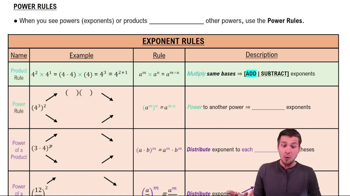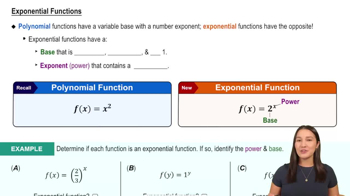Evaluate the following limits. Use l’Hôpital’s Rule when it is convenient and applicable.
lim_x→ e (ln x - 1) / (x - 1)
 Verified step by step guidance
Verified step by step guidance Verified video answer for a similar problem:
Verified video answer for a similar problem:



 5:53m
5:53mMaster Finding Differentials with a bite sized video explanation from Patrick
Start learning